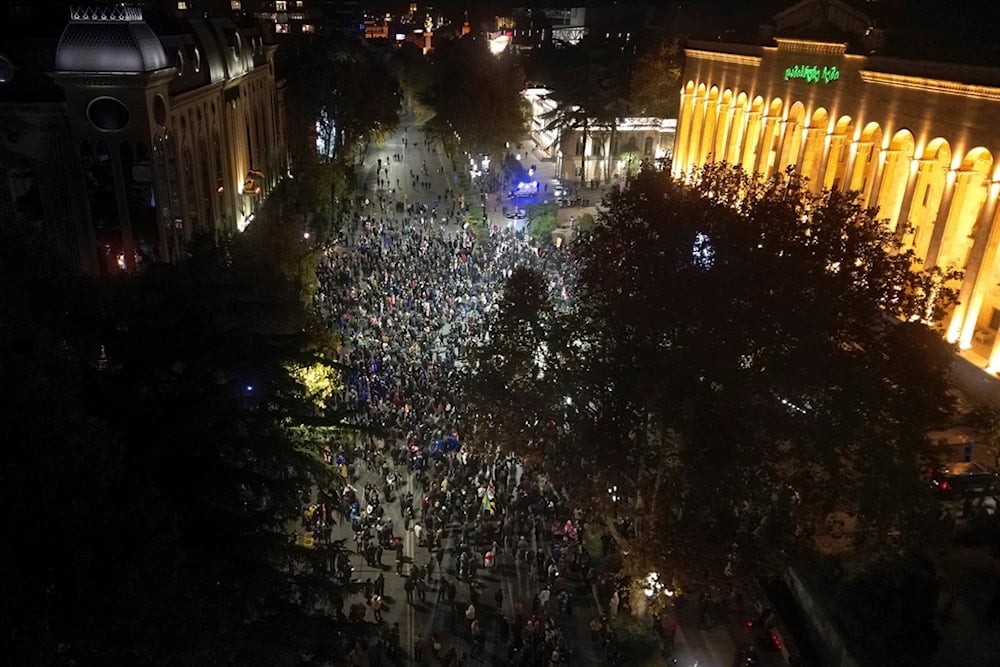Georgian parliament to convene amid president's continued opposition
President Zourabichvili, a pro-Western politician and longtime critic of Georgian Dream, has openly rejected the election results and accused the government of undermining Georgia's democratic process.
-

Protesters gather during a rally against the results of the parliamentary elections amid allegations that the vote was rigged in front of the Parliament's building in Tbilisi, Georgia, on Sunday, November 17, 2024. (AP)
Georgia's newly-elected parliament is set to hold its first session on November 25, even if President Salome Zourabichvili refuses to schedule the meeting, Prime Minister Irakli Kobakhidze announced Sunday.
This development comes as opposition parties rejected the results of the October 26 parliamentary elections, despite a recount being performed, alleging widespread fraud and demanding international oversight.
The ruling Georgian Dream party secured 53.93% of the vote, winning 89 of 150 seats in parliament. Four opposition parties, which collectively received 37.78%, claim the elections were marred by bribery, double voting, and physical violence. The opposition has called for a new vote and an international investigation into alleged irregularities.
In response to these allegations and public protests, the Central Election Commission (CEC) conducted a partial recount of ballots in late October, covering approximately 14% of polling stations across the country.
The recount reaffirmed the ruling Georgian Dream party’s victory, with the CEC declaring the results legitimate. However, opposition parties dismissed the recount as insufficient, maintaining their stance that the elections were fundamentally flawed.
"We assume that the president will again violate the constitution and will not schedule a parliamentary meeting," Kobakhidze told reporters. "In this case, the parliament will meet exactly on the 10th day after the announcement of the election results, that is, on November 25."
Read more: Georgian Dream secures victory in legislative elections
President Zourabichvili, a vocal critic of Georgian Dream, has aligned herself with opposition parties, accusing the government of orchestrating a "Russian special operation" to derail Georgia’s European integration.
Her remarks have particularly raised questions about external influence in Georgia's domestic politics, with critics suggesting that her stance aligns closely with Western narratives designed to pressure the Georgian government.
Read more: Georgia started war with South Ossetia 'on orders from abroad': PM

 2 Min Read
2 Min Read








